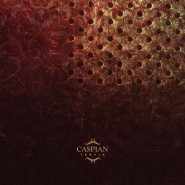 Caspian
CaspianTertia
Score: 46
Caspian, a post-rock band hailing from Massachusetts, released its second album earlier this week. On Tertia, Caspian shows the experience lent to them by its previous release, but at the same time they refuse to always use their clearly present ability to produce profound post-rock. Tertia is a jungle filled with both good and bad, but few real treasures.
Tertia begins well with the expertly-composed “Mie,” opening smoothly with a surprisingly lively static and growing beautifully into an all-encompassing sound underlaid by the radio-like buzz of muted vocals, all the while transitioning into a light, piano and synth-filled second act. The beginning of Tertia is Caspian at its best, and it’s a pity that the rest of the album can’t match up to that standard.
As Tertia progresses, it clearly suffers from a lack of innovation, but Caspian has nevertheless done many things right. They’ve built intriguing intros for much of the album, from the rock guitar of “Malacoda” to the quivering hum which begins “The Raven,” and the entirety of Tertia is infused with the sheer power which Caspian made their trademark on The Four Trees. Heavy guitar layering and abrupt shifts in volume occasionally give the album a metallic ambience, which plays the dual role of disrupting consistency in the album and spontaneously energizing the music. Shifts between the softer sound of tracks like “Ghosts of the Garden City,” which uses a light vocal layer in much the same was as “Mie” though in a slightly less successful manner, and stronger tracks such as “Of Foam and Wave” prevent the album from becoming too repetitive, though it can’t quite escape that fate on individual tracks.
As successful as some tracks are, Tertia never fully escapes from repetition, awkward transitions, and tracks that completely fail to influence the album as a whole, except to increase its total length. One of the worst offenders, “La Cerva” repeats the same miniature theme through nearly the entire track while trying to make it sound interesting by tweaking an element here or there, adding or removing a voice, or changing the key.
Though Caspian has clearly cemented certain elements, it has not yet managed to find the line between drawn out and overly lengthy. The glockenspiel line and the synthesized choir sound of “Ghosts of the Garden City” are perfect examples of the latter category. So while “Malacoda” (even with its awkward transitions) and “Concrescence” push the album forward, other tracks like “Epochs in Dmaj” and “Vienna” hold the album paralyzed. With Tertia, Caspian has done the extraordinary: making post-rock tracks sound long - even when under five minutes.
While Tertia begins well with the formidable “Mie,” the energy of that track quickly goes to waste, squandered through “La Cerva“ ‘s incessant repetition, and Tertia never attains that level of quality again. Several tracks, such as “Malacoda” and “The Raven” are certainly interesting but together lack the diversity needed to make them truly exceptional. By the end, Tertia has formed less into a solid album and more into a jumble of tracks, some mediocre, some middling but intriguing, and very few inspired. Buried under so many pedestrian efforts, the latter two groups cannot hope to triumph over the shortcomings of the rest. And so Tertia is mediocre, though it certainly had the potential to be much more.